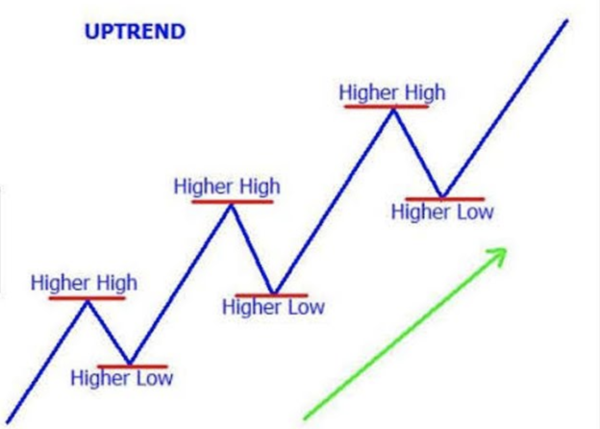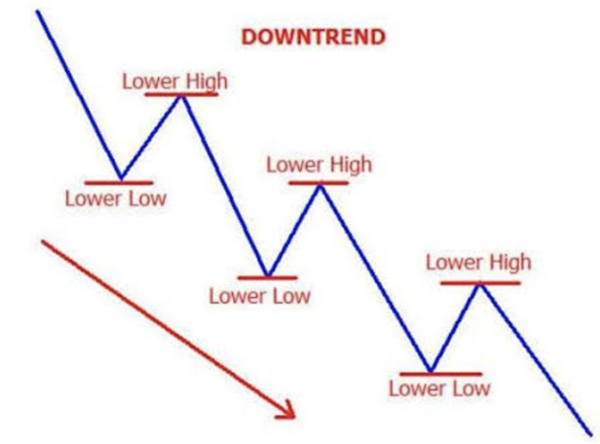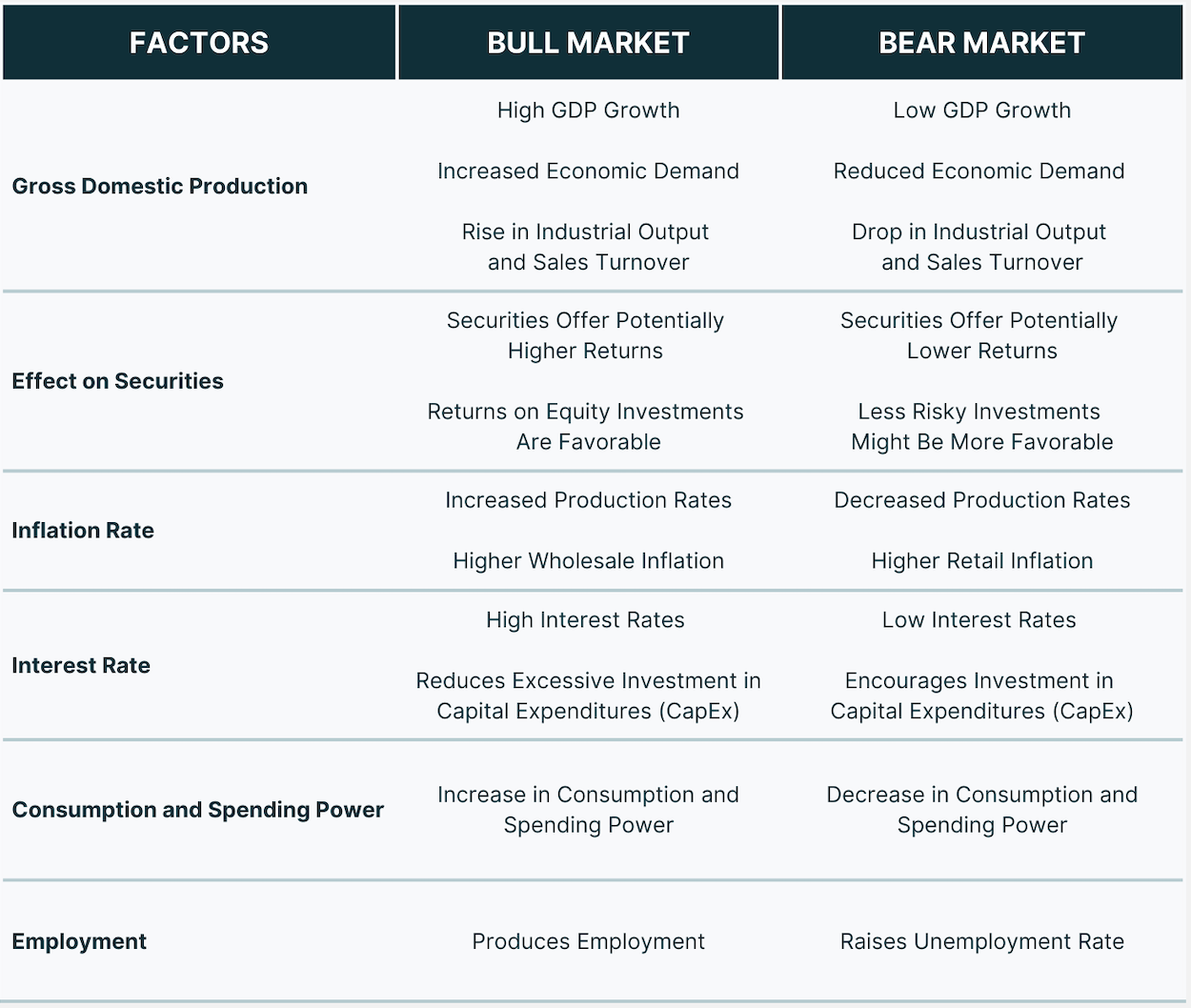Anyone who looks at the stock market news is bound to come across two frequently occurring phrases—“Bull Market” and “Bear Market”. Although never used together, these two phrases greatly describe the current state of the market. Therefore, it is important for an investor to know and understand the significance of these phrases.

First, a Bull Market is most simply a period of time where stock prices are rising. Most of the time, this phrase is used to describe the prices of the stock market, but it can also describe the prices of other types of securities. This term is mostly used in a general sense where prices are high, rather than an exact quantitative analysis. However, a bull market is usually classified if the prices are over 20% from their previous low.

On the contrary, a Bear Market is exactly the opposite of a bull market. It describes the scenario (mostly in the stock market) when the prices of stocks are falling. To put a number to it, it is usually when prices dip around 20% from their previous high. It is important to remember that one cannot time the stock market, so it is unknown for certain if we are in a bear or bull market until afterward.
To compare the two phrases, a bull market represents a projection that the economy is robust and growing and where there could be strong GDP growth, low inflation, and higher profits for firms. In this type of market, the overall demand for stocks is higher, and optimistic reports about the stock market are seen. This term is usually associated with investor confidence and strong results. On the other hand, in a bear market, the economy is projected that it will not do well, where uncertainty lingers in the air and stock market news is generally pessimistic. Short-term investors begin to sell their holdings in fear of losing more of their money. Companies’ profits are forecasted to plummet during this period, and unemployment rises. Bear markets usually correspond to a negative tone in the market and low demand for stocks. Hence, a bull market is far more favorable than a bear market.

The reasoning behind the names of these phrases originates from the way the respective animals attack their prey. Since bears attack by swiping their claws down, it is representative of how markets are down in a bear market. Contrastingly, since bulls thrust their horns in an upward motion when attacking their prey, it is associated with rising markets.
Bull Markets and Bear Markets are both not sustainable. Bull Markets will eventually fall after prices for stocks increase to a level that deters investors from investing their money. This would eventually make it difficult for sellers to sell their positions and would be forced to lower the share price they intend to sell their stock for. In time, this pattern would become more widespread across the market, and there would be a general fall in prices.
In a similar way, Bear Markets will eventually evolve out of their unfavorable state because as prices become lower, it incentivizes investors to purchase shares of that company, and over time, will result in higher prices throughout the stock market.
Beyond the stock market, bull and bear markets can be indicators of the economy. The stock market might lead the business cycle (The four phases of the business cycle include expansion, peak, contraction, and trough). Therefore, if there is a bull market, it might suggest an approaching economic expansion whereas a bear market could signify an impending economic contraction.
Overall, these two terms are imperative for an investor to be aware of as they help to gauge the overall trends and mood of the stock market.













































































































































